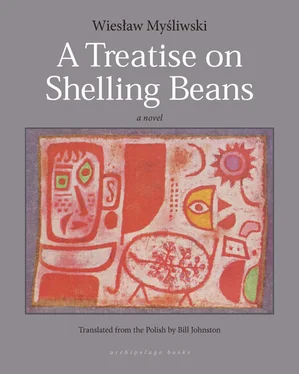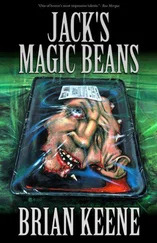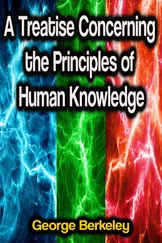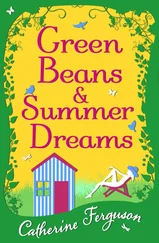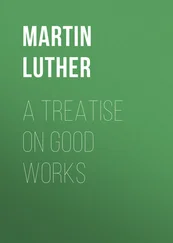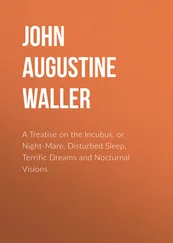“Live on, you’re one of God’s creations. The meadow’ll survive somehow or other.”
Grandfather never even got into fights at dances when he was young, though there were fights, there were all kinds of fights, sometimes the whole dance would be fighting among themselves. He never even fought over grandmother, though she was constantly being whisked away to dance. He’d just sit on a bench while grandmother danced. He preferred to just watch her dancing with someone else, rather than fighting over her. No, he was a big man, strong as an ox, when he was young he must have been a strapping guy. It was just that, like I said, he was meek and helpless, as if his own strength made him weak.
“Ah, she’d dance and dance, you wouldn’t have known her,” he would remember proudly. “When it came to the oberek , she’d fly through the air. When I looked at her feet, they wouldn’t even be touching the floor. Why should I have been angry? She’d dance her fill, and I knew she’d be mine anyway.”
When they got married, grandfather had already been called up to serve in the war. He didn’t want the marriage, who knew if he’d come back, he said. But grandmother said that a wife waiting for a husband was different than an engaged woman waiting for her fiancé. And she led grandfather to the altar. Now she was his wife he’d know how to go to war. They’d have a different kind of joy when he came back, because he had to come back. She might curse God if he didn’t come back.
And so to stop grandmother having to curse God, grandfather had such a rush of strength when he felt the bayonet in his belly that he killed the man who stuck it in him, along with the guy’s two comrades. He remembered them like it was yesterday. The one that stuck him was a skinny guy, short, looked like he was all greatcoat from his neck to the ground, with nothing but a helmet on top. Like he had sleeves instead of arms, and it was the sleeves that stuck the bayonet in grandfather’s belly. And he did it right at the moment when grandfather had opened his mouth to say, Let’s not kill each other. I have to go back home. And you have to go back home. But he had to kill him. Not even with a bayonet, not with a bullet, but with the great strength he felt inside himself instead of pain. He grabbed hold of the other guy under his helmet and pushed him to the ground. He did the same with his two pals. They even went down on their knees to ask for mercy, but he couldn’t stop the strength within him. He grabbed one under the helmet and brought him down, then he did the same with the other one. It was only after he’d killed them that the strength left him. He sat down by the bodies and cried. It was only then that he felt the pain in his belly from the bayonet wound.
But even they wouldn’t appear to grandfather in dreams. He’d tell grandmother to explain to him how it was, what it meant. If wars mark off people’s lives, they ought to mark off their dreams as well. Had he stopped being a person? Let her explain it to him. But grandmother would usually just lose patience with grandfather:
“Explain what? What do you want me to explain? First you have to have dreams.”
Though to tell you the truth, I suspect she must have known the meaning of a gap in the night like that. Perhaps she simply didn’t want to make grandfather worry, because she always looked for something comforting in a dream, even if it was a frightening one. With all those dreams she carried inside her, she couldn’t have not known. So grandfather held it against her. But he also held it against God for not granting him the grace of dreams, when other people are given great grace. Could it be that He was angry with him for the three men he’d killed? He was God, surely He knew that in wars people kill each other. He ought to understand. So many wars had passed through the world since He created it, and He hadn’t stopped a single one with His almighty powers, so why would grandfather’s one war and those three killed men be of any importance? Plus, if He ruled the world then He also ruled wars, and grandfather wouldn’t have killed without His having willed it. Why was he being punished?
During the bean-shelling, when he started talking about wars it never ended till we ran out of beans. One time, I remember, he told about how he’d met a philosopher. No, it wasn’t one of the three men he killed. If it had been one of those, he wouldn’t have known he’d killed a philosopher. When you kill someone, no one introduces themselves. Especially when it’s one extended line against another, one bayonet against another. And in that war most of the killing was done by bayonet. They’d all jump out from the trenches and rush at each other with a Hurrah! Then they’d go back to their trenches, and between the trenches there’d be a growing mountain of bodies. At times the war would stand in one place for weeks on end, so when they weren’t killing each other they’d often even get to know one another. That I can’t tell you. You’d have to have asked grandfather. I was a child when I heard all this. And children believe everything. Why would I not have believed it. You’ve never lived through a war? You’re lucky, though I also feel sorry for you. In wartime all kinds of things can happen. War mixes things up, levels them out. Farmers or philosophers, they’re all good for dying. So anyone can meet anyone. Where else could a farmer meet a philosopher?
So when they weren’t fighting, especially at night, because obviously you can’t fight with bayonets at night, and there were days on end when they didn’t fight because there were no orders, the men from the two lots of trenches would go out and meet up with each other. They’d sit around among all those bayoneted bodies, share their tobacco and vodka, swap various things, sometimes play cards. Why not? Blackjack, for example, you can play that in the dark. All you need is to take a drag on your cigarette, the tip lights up and you can see your cards. Other times they’d sing songs, sometimes the men on both sides would sing in the same language.
So anyway one time, this was also at night, it was raining on and off, everyone was squatting under their waterproof capes in their trenches. All of a sudden grandfather sees someone leave the enemy trench, stand among the bodies and turn his face up to the sky, as if he was trying to gather all the rain on his face. So grandfather went out there, and turned his face upward into the rain the same way. The other guy asked if grandfather maybe wanted something to eat. Grandfather’s belly was rumbling, because they’d even run out of hard tack. So the other man went back to his trench and brought a can. They sat down together, opened the can, and set about eating. With the same bayonets they’d been sticking each other with, of course.
Grandfather was too shy to ask who he was eating with. Besides, what difference did it make? All that mattered was that the other guy had brought the can. And since he was also in uniform, though it was an enemy uniform, there’s no way grandfather could have known he was eating with a philosopher. So they sat there eating, leaning towards each other to shelter the can from the rain. The other man didn’t say anything. As for grandfather, it was true he liked to talk, though mostly about wars, like I said. But how could he talk about war since they were actually at the war, and they were sitting and eating amid the bodies of men who’d been killed. They did take the casualties away, but only the wounded ones, the dead weren’t cleared till the front moved.
So grandfather started singing the praises of the canned food, he said it was really tasty, and not just because his belly had been growling, but in general he liked to say nice things about everything. The day, the night, life, people, God. That’s the kind of person he was. So the other man told grandfather to finish off the whole of the rest of the can. Out of gratitude grandfather got to talking about himself. That he’d left a young wife behind at home. That he hoped to go back to her. That he had three cows, two horses, this many acres, some meadow-land, some woodland. That he sowed and plowed, day after day. And in the fall and winter they mostly shelled beans, because they planted enough of them so there’d be sufficient for the shelling all fall and winter. They’d all sit down, the lamp would be lit, they’d be shelling beans and telling stories. When he got back he’d tell stories about the war, and about how the two of them had eaten a can of food together.
Читать дальше
